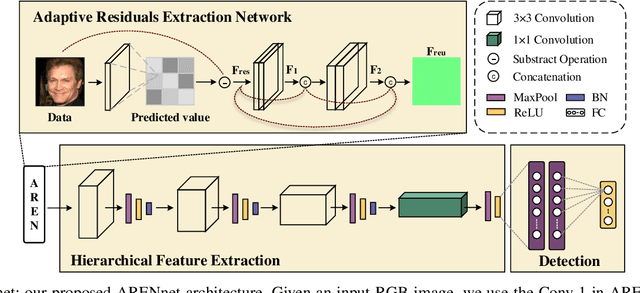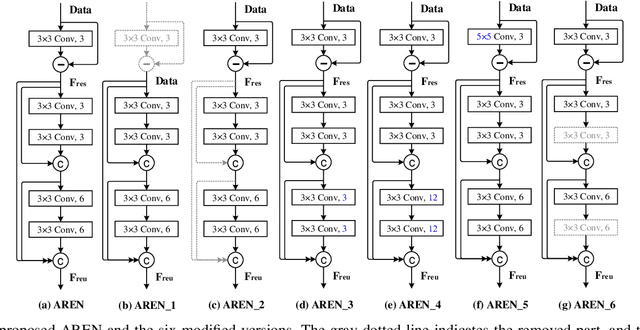Fake Face Detection via Adaptive Residuals Extraction Network
Paper and Code
May 11, 2020



With the proliferation of face image manipulation (FIM) techniques such as Face2Face and Deepfake, more fake face images are spreading over the internet, which brings serious challenges to public confidence. Face image forgery detection has made considerable progresses in exposing specific FIM, but it is still in scarcity of a robust fake face detector to expose face image forgeries under complex scenarios. Due to the relatively fixed structure, convolutional neural network (CNN) tends to learn image content representations. However, CNN should learn subtle tampering artifacts for image forensics tasks. We propose an adaptive residuals extraction network (AREN), which serves as pre-processing to suppress image content and highlight tampering artifacts. AREN exploits an adaptive convolution layer to predict image residuals, which are reused in subsequent layers to maximize manipulation artifacts by updating weights during the back-propagation pass. A fake face detector, namely ARENnet, is constructed by integrating AREN with CNN. Experimental results prove that the proposed AREN achieves desirable pre-processing. When detecting fake face images generated by various FIM techniques, ARENnet achieves an average accuracy up to 98.52%, which outperforms the state-of-the-art works. When detecting face images with unknown post-processing operations, the detector also achieves an average accuracy of 95.17%.
 Add to Chrome
Add to Chrome Add to Firefox
Add to Firefox Add to Edge
Add to Edge